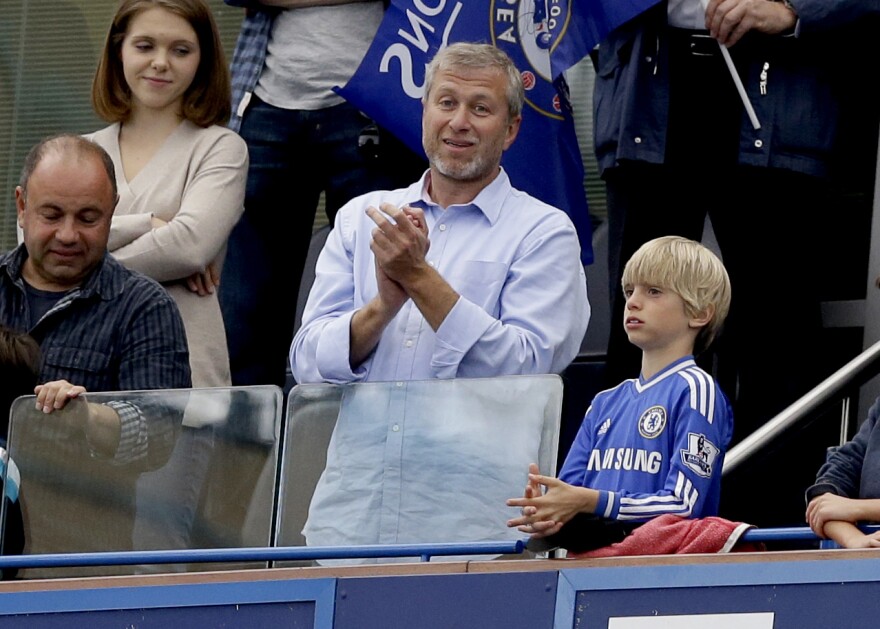After coming under pressure after Russia's invasion of Ukraine, the billionaire Russian oligarch Roman Abramovich said he will sell Chelsea — the Premier League team that was transformed into one of the world's top soccer clubs under his ownership.
"Please know that this has been an incredibly difficult decision to make, and it pains me to part with the Club in this manner. However, I do believe this is in the best interest of the Club," Abramovich said in a statement released by the team Wednesday.
The club will set up a new charitable foundation that will use the net proceeds of the sale to benefit "all victims" of the war in Ukraine, he said.
"This includes providing critical funds towards the urgent and immediate needs of victims, as well as supporting the long-term work of recovery," the statement reads.
Statement from Roman Abramovich.
— Chelsea FC (@ChelseaFC) March 2, 2022
Abramovich's massive fortune comes from his involvement in the Russian oil and metals industries, especially his acquisition of a formerly state-owned oil company during the wave of privatization in Russia in the mid-1990s.
He is close with Russian President Vladimir Putin, as he was with former Russian President Boris Yeltsin.
He is not among the handful of Russian oligarchs currently sanctioned by the U.S., although he was included on a list of Russian politicians and oligarchs linked to Putin that was compiled in 2018 by the U.S. Treasury Department.
But the British government has been under pressure to take more action against oligarchs like Abramovich. The U.K. has long been a destination where wealthy Russians can park their vast riches in shell companies and multimillion-dollar London townhomes.
In recent days, British politicians have looked to tighten regulations around foreign investment and seize assets purchased with ill-gotten funds. Prime Minister Boris Johnson's Conservative Party has come under scrutiny for political donations from Russian investors.
Apparently feeling the pressure, Abramovich announced Saturday that he was handing over "stewardship and care" of the club to the trustees of its charitable foundation.
But the questions continued. On Wednesday, before Chelsea's announcement, Labour Party leader Keir Starmer asked publicly about Abramovich directly: "Last week the prime minister said that Abramovich was facing sanctions. He later corrected the record to say that he isn't. Well, why on earth isn't he?"
Abramovich has owned Chelsea since 2003, when he bought out most of its then-shareholders for about $233 million.
In the Abramovich era, Chelsea has experienced enormous success, winning the Premier League title five times, the FA Cup five times and the Champions League twice.
The club is now worth more than $3 billion, according to a Forbes estimate from last year. Abramovich has set a deadline of Friday for initial offers and is reportedly looking to sell for at least $2.5 billion.
Abramovich helped establish the model of foreign-billionaire ownership of Premier League teams. Club owners now include megarich investors from the U.S., the United Arab Emirates, China, Thailand, Egypt and Iran.
Copyright 2022 NPR. To see more, visit https://www.npr.org.




